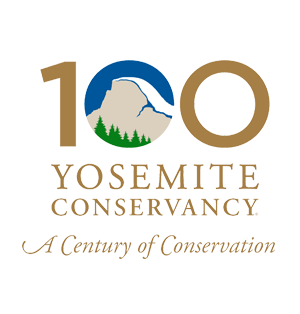General Yosemite Information:
For the most up to date information about the park and programs being offered, we highly recommend reviewing the Yosemite Guide.
Where should I stay?
For registered participants, fees cover the cost of camping at shared campsites.
Additionally, a limited number of hotel rooms or tent cabins are available for participants at an additional cost through Yosemite Hospitality (the concessionaire that manages the park’s lodging, food, and retail operations). Check the specific program for lodging upgrade information.
You’re also welcome to find lodging on your own outside the park in the surrounding gateway communities.
How do I get to Yosemite?
Most participants drive to Yosemite since it is some distance from urban areas.
Major airports near Yosemite include Fresno, San Francisco, Sacramento, and Reno (in summer).
We encourage taking public transit when possible. Here are some options:
- Extranomical Tours offers daily bus tours to Yosemite from San Francisco. You can take these tours one-way, then obtain your lodging on your own, then use it to return to San Francisco when you choose.
- Take Bart from San Francisco to Amtrak in Tracy.
- Amtrak San Joaquins: Take the Amtrak train to the Merced station and then hop on our thruway bus partner, YARTS, for a seamless ride into Yosemite. Book your ride via Amtrak San Joaquins to help reduce your carbon footprint and emissions in the park.
- YARTS: Buses operate throughout the Yosemite region and service all of the surrounding gateways to the park.
Please note that not all course meeting sites are accessible by public transportation. Feel free to contact the office to see if your program is accessible by public transportation: 209-379-2647
Are the gas stations or charging stations in the park?
Yes, there are charging stations throughout the park. To learn more, check out the Electric Vehicle Charging Map.
Gas stations are limited in the park. The only two stations are in Wawona and Crane Flat. It is best to fill up the gas tank BEFORE arriving at the park.
What are the roads like in the winter?
Snowy or icy road conditions are common in the mountains of California, including Yosemite, from fall through spring. When these conditions exist, federal regulations (in Yosemite) and state law (outside Yosemite) require that you use chains or cables in order to reduce the chances of accidents. Chain requirements are strictly enforced. To learn more about the chain requirements visit this website.
For current road and weather conditions call the NPS 24-hour hotline at 209-372-0200 (press 1, then 1) or visit NPS.gov/Yose.
Your vehicle should be prepared for winter conditions. This includes:
- Having a good ice scraper/snow brush and snow shovel in your car
- Making sure your radiator has fresh antifreeze
- Checking your tire chains for fit and making certain your battery is in good condition.
- Most of the time, chains are not required if you have a 4-wheel drive vehicle running M&S rated tires, however park officials do require even 4-wheel drive vehicles to carry tire chains in case the roads get really icy.
- Full tank of gas or charge.
Do cell phones work in Yosemite?
Reception is unreliable in the park. Verizon and AT&T work better than other carriers. You can get service with these two carriers in Yosemite Valley but on the highways entering Yosemite Valley, there is usually no service. We ask that phones be kept on silent mode during our programs.
